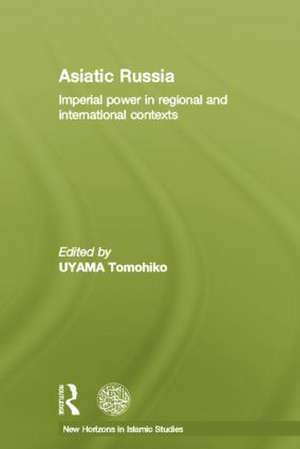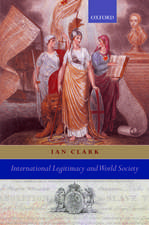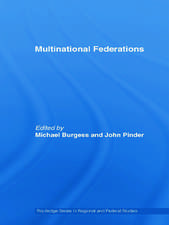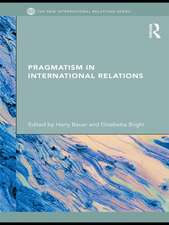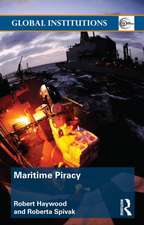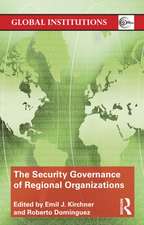Asiatic Russia: Imperial Power in Regional and International Contexts: New Horizons in Islamic Studies
Editat de Tomohiko Uyamaen Limba Engleză Paperback – 10 mar 2014
In Asiatic Russia, an international team of scholars explores the interactions between power and people in Central Asia, Siberia, the Volga-Urals, and the Caucasus from the 18th to the early 20th centuries, drawing on a wealth of Russian archival materials and Turkic, Persian, and Tibetan sources. The variety of topics discussed in the book includes the Russian idea of a "civilizing mission," the system of governor-generalships, imperial geography and demography, roles of Muslim and Buddhist networks in imperial rule and foreign policy, social change in the Russian Protectorate of Bukhara, Muslim reformist and national movements.
The book is essential reading for students and scholars of Russian, Central Eurasian, and comparative imperial history, as well as imperial and colonial studies and nationalism studies. It may also provide some hints for understanding today’s world, where "empire" has again become a key word in international and domestic power relations.
Din seria New Horizons in Islamic Studies
-
 Preț: 486.17 lei
Preț: 486.17 lei -
 Preț: 421.19 lei
Preț: 421.19 lei -
 Preț: 486.42 lei
Preț: 486.42 lei - 16%
 Preț: 351.24 lei
Preț: 351.24 lei -
 Preț: 416.22 lei
Preț: 416.22 lei -
 Preț: 420.46 lei
Preț: 420.46 lei -
 Preț: 395.76 lei
Preț: 395.76 lei -
 Preț: 409.90 lei
Preț: 409.90 lei
Preț: 312.91 lei
Preț vechi: 371.95 lei
-16% Nou
Puncte Express: 469
Preț estimativ în valută:
59.89€ • 65.08$ • 50.34£
59.89€ • 65.08$ • 50.34£
Carte tipărită la comandă
Livrare economică 21 aprilie-05 mai
Preluare comenzi: 021 569.72.76
Specificații
ISBN-13: 9781138789197
ISBN-10: 1138789194
Pagini: 320
Ilustrații: 3 black & white illustrations, 10 black & white tables, 3 black & white line drawings
Dimensiuni: 156 x 234 x 20 mm
Greutate: 0.48 kg
Ediția:1
Editura: Taylor & Francis
Colecția Routledge
Seria New Horizons in Islamic Studies
Locul publicării:Oxford, United Kingdom
ISBN-10: 1138789194
Pagini: 320
Ilustrații: 3 black & white illustrations, 10 black & white tables, 3 black & white line drawings
Dimensiuni: 156 x 234 x 20 mm
Greutate: 0.48 kg
Ediția:1
Editura: Taylor & Francis
Colecția Routledge
Seria New Horizons in Islamic Studies
Locul publicării:Oxford, United Kingdom
Public țintă
Postgraduate and UndergraduateCuprins
Introduction Part I: Russia’s Eastern Expansion: Its "Mission" and the Tatars’ Intermediary Role 1. The Russian Empire’s Civilizing Mission in the Eighteenth Century in Comparative Perspective 2. Tatarskaia Kargala in Russia’s Eastern Policies 3. The Russian Empire and the Intermediary Role of Tatars in Kazakhstan: The Politics of Cooperation and Rejection Part II: Taming Space and People: Institutions and Demography 4. Intra-Bureaucratic Debate on the Institution of Russian Governors-General in the Mid-Nineteenth Century 5. Asiatic Russia: Colonization and "Russification" in the Imperial Geography of the Nineteenth to Early Twentieth Centuries 6. Empire and Demography in Turkestan: Numbers and the Politics of Counting Part III: Russian Power Projected beyond its Borders 7. Russo-Chinese Trade through Central Asia: Regulations and Reality 8. Muslim Networks, Imperial Power, and the Local Politics of Qajar Iran 9. Sunni-Shi‘i Relations in the Russian Protectorate of Bukhara, as Perceived by the Local ‘Ulama 10. The Open and Secret Diplomacy of Tsarist and Soviet Russia in Tibet: The Role of Agvan Dorzhiev (1912–1925) Part IV: Asiatic Russia as a Space for National Movements 11. Muslim Political Activity in Russian Turkestan, 1905–1916 12. On the Cultural Front Lines: Muslim Reformers and Communities in Late Imperial Russia 13. The Alash Orda’s Relations with Siberia, the Urals and Turkestan: The Kazakh National Movement and the Russian Imperial Legacy
Notă biografică
UYAMA Tomohiko is professor at the Slavic Research Center, Hokkaido University. He specializes in the history of the Russian Empire and contemporary politics in Central Asia, and is the editor of Empire, Islam, and Politics in Central Eurasia (2007) and co-editor of Japan’s Silk Road Diplomacy (2008).
Recenzii
"This volume will be of interest to anyone studying the dynamic historical accounts of Russia’s policies in the East, and particularly Central Asia, until the times of the Soviets." - R. Turaeva, Max Planck Institute for Social Anthropology, Halle, Germany; Slavonic and East European Review (vol. 91, no. 2, April 2013).
Descriere
Although the Russian Empire has traditionally been viewed as a European borderland, most of its territory was actually situated in Asia. This book examines the history of the Asian parts of the Russian Empire, investigating the empire’s policy toward various religions and ethnic groups. It charts its expansion and how it established its rule in the east, interacting with local actors and introducing new instituions and ideas.
